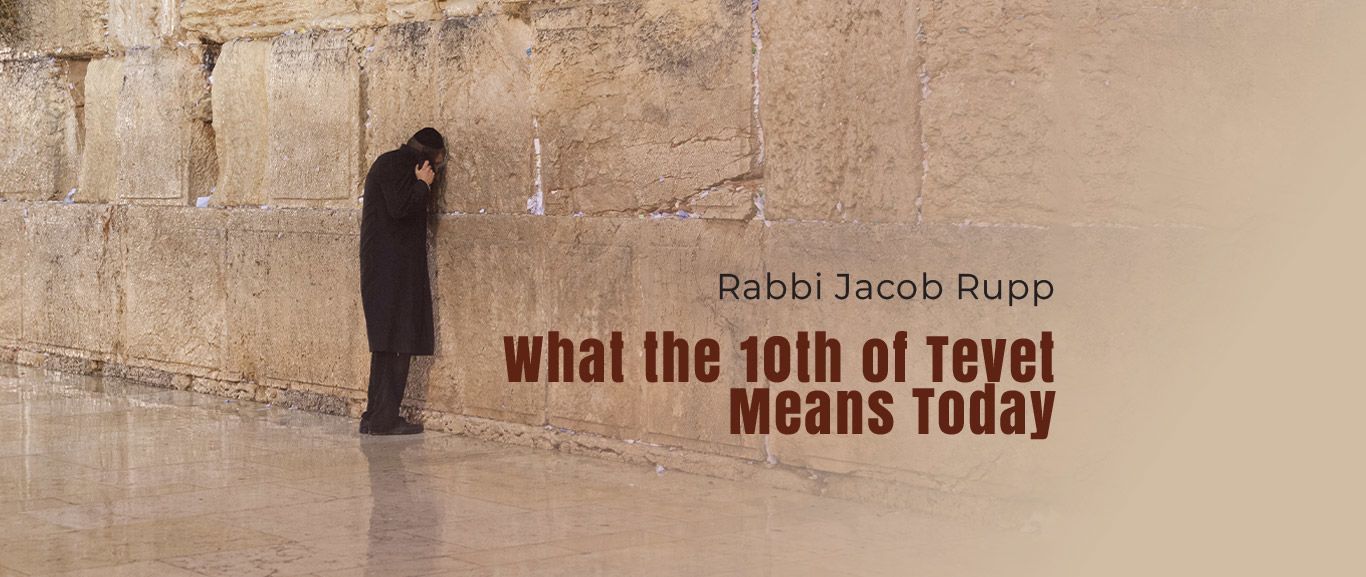
What the 10th of Tevet Means Today
We are so disillusioned by a world without the Beit Hamikdash that truth and fiction, sacred and profane blur before us. In our long exile, we have strayed so far...

Today, our people suffer from an identity crisis. Across the globe, people try to reform, reinvent, and revitalize what it means to be Jewish. Millions of others skip the identity crisis stage and simply “leave” Judaism. No other nation on earth faces such a crisis! Why is it that the Jews, one of the most ancient peoples on the planet, are still struggling to define themselves?
The tenth day in the month of Tevet is a fast day. We abstain from eating and drinking to remember the beginning of the Babylonian siege on Jerusalem which led to the destruction of the First Temple. Living in the post Holocaust era, we are very familiar with commemorating tragedy in Jewish history. Yet, while the Holocaust happened in the last century, the first Chorban Beit Hamikdash (destruction of the First Temple) was thousands of years ago! Can’t we as a people to distance ourselves from that tragedy? Aren’t we (as the phrase goes) crying over spilled milk?
Crying over spilled milk is fruitless. After all, it’s just milk. Even those of us who live in Israel and don’t have a car (insert gasp here) only have to walk one-half mile to the nearest store and get a new bottle (or bag) of milk. It is replaceable. The Temple was not. By understanding more about the “House of God” and what it stood for, we can begin to fathom why we are still mourning its loss thousands of years later.
A Metaphor
The Beit Hamikdash represented something that is hard to grasp in today’s society. In the world of tabloids, the internet, billboards, and the media, we are de-sensitized to the mystery and spirituality of the human body, and our environment publicizes and encourages any and all types of sensuality. Today, very little is left to the imagination. The terms physicality and intimacy are misrepresented as synonyms.
While Judaism does not view the physical as inherently bad or unholy, it does draw a stark contrast between intimacy and physicality. Physicality, void of intimacy, is nothing more than a base experience, totally detached from a greater spiritual connection. The Torah teaches us that it is man’s job to elevate every physical act, from eating and drinking to getting a haircut, and everything in between.
In the right place and time, the relationship between man and woman can be a tremendous source of holiness. It allows people to be God-like since they are able to create life from their union (and even when a life is not created, each act of intimacy creates spiritual souls – Editor). But the secret to the holiness of the male/female relationship is found in intimacy; it is a relationship that is both exclusive and modest, and exists within the confines of halacha (Jewish law). The power and potency of this relationship has the power to bring the Divine presence into the home. It takes two physical beings and makes them eternal through the children they produce and the holiness that resides in their midst.
A Marriage Between God and His People
One of the most concrete expressions of intimacy is a kiss. The mouth represents the union between thought and deed, and therefore the mouth transforms a thought into an action which conveys a special type of relationship. The beautiful and exclusive relationship that can exist between a man and a woman is a metaphor for the relationship between the nation of Israel and God. Our sages explain that when we received the Torah at Mt. Sinai, we were essentially marrying the Almighty. The Torah was the ketubah (marriage contract), the groom was Hashem, and the bride was Israel. God promised to take care of us and love us, in return for us promising to honor His laws and be loyal to him.
As a sign of the love between God and humanity, we were given the Beit Hamikdash, a tangible sign of the holy, marital relationship that God had with His nation. The Gemara refers to the Beit Hamikdash as “the place where heaven and Earth kiss.” The Holy of Holies, the epicenter of the Beit Hamikdash, was so holy that only the High Priest could enter once a year. Though non-Jews could visit the Temple, their access was restricted to the outer chambers. The Temple’s inner chambers were reserved for the Jewish people, signifying our deeply intimate relationship with God.
The Beit Hamikdash
Just like an entire household is built by the love between a husband and wife, the entire world is sustained through the relationship that God has with Jewish people. This relationship was renewed and invigorated in the Temple. Our sages tell us that the entire world exists to allow the Jewish people to do mitzvot. The greatest mitzvot deal with the sacrifices that were offered in the Beit Hamikdash. Our sacrifices, the manifestation of our love, sustained the world from that spot in Jerusalem where the Temple stood.
The Beit Hamikdash not only represented the intimate relationship between God and Israel, but was a place where the spiritual world flowed into the physical world. The spot upon which the Temple stood was the point from which the world was created, and from this point stretched out all physical matter. It was literally the soul of the collective Jewish people.
This spot is the holiest in the world. Our forefather Yaakov (Jacob) called it “the House of God,” a tangible place of pure spirituality. We cannot grasp such a concept—imagine, at this spot, spirituality was as real as physicality and a person could know God’s existence in the same way he could sense any other physical object with all five of his senses. The Temple utilized this energy and translated it for us, the Jewish people. When the Temple stood, a person could witness irrefutable proof of the existence and ongoing relationship God has with man based on the constant miracles that occurred there.
The Beit Hamikdash was the perfect home, representing the perfect marriage. Two partners, God and Israel, sustained the entire world through their loving relationship. In a way unlike any other time in history, the world was nearly complete. The House of God stood on earth, and raw spirituality was channeled into the physical world. The warmth, support, and connection that characterized a good home were a tangible reality that existed between us and the Creator.
A Horrific Divorce
Yet Israel became too comfortable in her marriage, and turned astray. She abandoned both God and His laws. And because of Israel’s sins, the dream home, the storybook romance, was shattered into a horrific divorce. The warm feelings grew cold, as love turned to distance, and the world as we knew it was destroyed. Our ancestors had tasted true love and then lost it, and with this severed relationship, everything we knew was gone. Life had lost its flavor.
The destruction of the Beit Hamikdash was not simply a matter of burning down sticks and stones; it was the annihilation of our childhood home, of that place we could go to thrive in comfort and security. With the dream gone, our home was in ashes, and all we could find in its place was heartbreak, horror, discomfort, and a gut- wrenching distance from God.
Fast forward a few thousand years to the modern day. Like disillusioned lovers, we wander about. Huge scabs cover over the deep scars of our souls. We suffer greatly because we were born having never seen true joy or happiness as existed during the times of the Temple. Instead, we have seen only the darkened ashes of divorce, and never the comfort of a happy home.
Longing to Reunite
Our identity crisis is an enigma no more; being Jews, our souls desperately long to be reunited with our Creator as they were when the Temple stood. We have been so disillusioned by a world without the Beit Hamikdash that truth and fiction, physicality and intimacy, sacred and profane blur before us. In our long exile, we have strayed so far from our roots that we question if they were ever there at all.
But there is hope. The Torah says “(Follow God’s laws)… So that the land shall not spew you out for having defiled it, as it spewed out the nation before you” (Vayikra 18:28).
Rabbi Eliyahu Kitov writes in The Book of Our Heritage, “God assures Israel that even if they should defile the land, it will not spew them out. Though the Canaanites were spewed out, Israel was only temporarily exiled. She will return to it and possess it as an eternal inheritance. Her return is dependent on her repentance and Divine mercy.”
We should not make the mistake of thinking the modern state of Israel is the eternal heritage to which the Torah refers! We have not been brought home yet! Foreign nations threaten us from the outside, and strange concepts threaten us at home. The tangible reality of God’s presence has not returned to us yet, and a gold tipped structure reminds us that a foreign people still possess the very spot upon which our home was, and will be built again.
The heartbreaking reality of modern life, which is divorced from the spiritual dimension that was once a reality for the Jewish people is enough to bring back fresh tears. Deep down, we are all children who long to return back to the safe and warm home where we were raised. We long to be returned to the place where life was simple, when we were content, and when danger stopped at our front door. We cry for what once was, and our tears are not in vain.
Still Alive!
When Yaakov mourned his lost son, Yosef (Joseph), the Torah says that he could not be consoled. Rashi explains that when a person dies, eventually time heals the wounds. Yet Yaakov mourned for twenty-two years! He was inconsolable because Yosef was still alive, even though Yaakov didn’t know it. Though time can comfort us for those whom we’ve lost, we cannot be consoled when our loved one remains alive, yet hopelessly distanced from us.
As the Jewish community attempts to grasp what it means to be Jewish, on the 10th of Tevet, it becomes obvious from where this identity crises stems. We are all subconsciously “inner wounded children” who yearn to be reunited with our Father in Heaven. We fast and cry because we recognize that a peaceful, complete world is not a pipe dream or childlike fantasy, but rather a reality that has not yet been actualized.
Rebbe Nachman of Breslev teaches us that fasting illuminates God’s favor (Likutey Etzot, p.308). Thus on this day, we repent, we fast, and we pray that our God will look kindly upon His children once again. We hope that He will bring us home from all four corners of the Earth, soon, so that we may dwell with Him in His house, the Third Temple, forever.


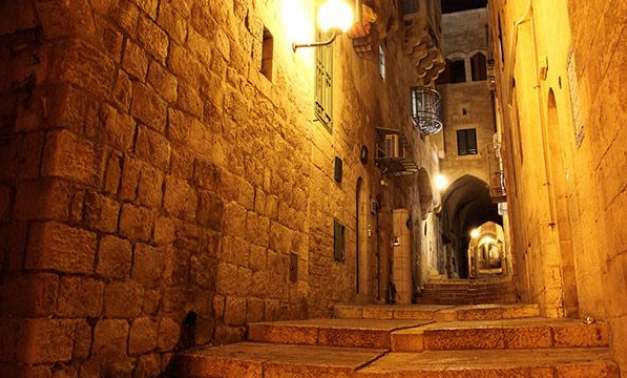
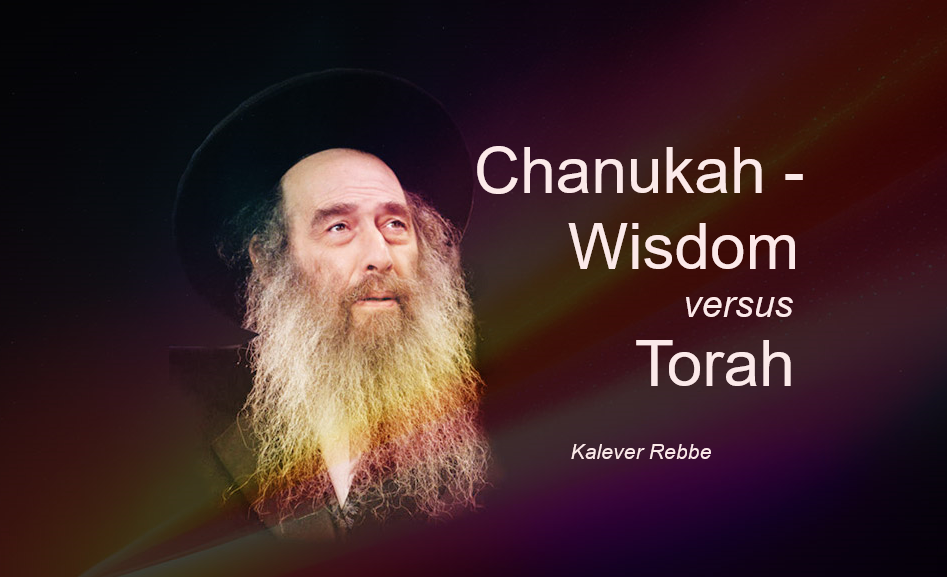
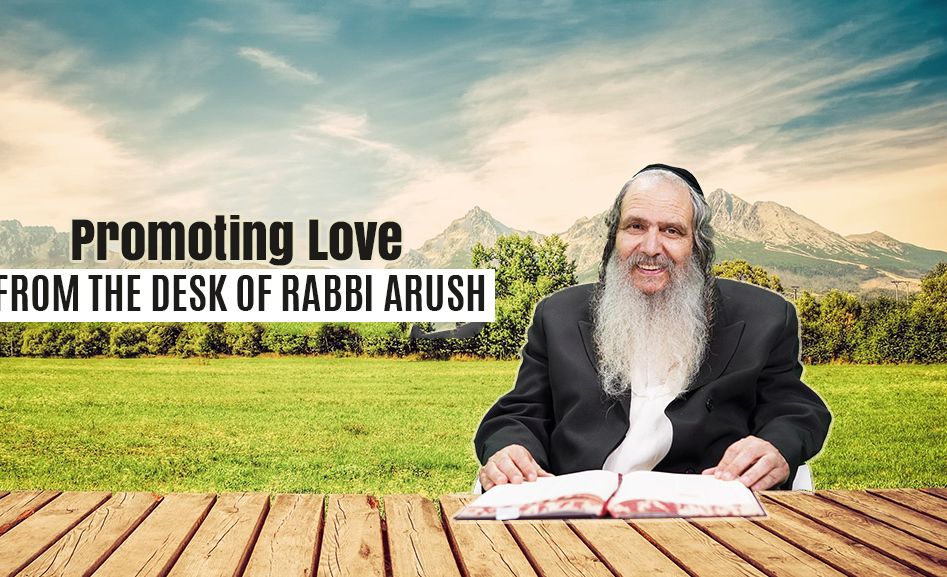
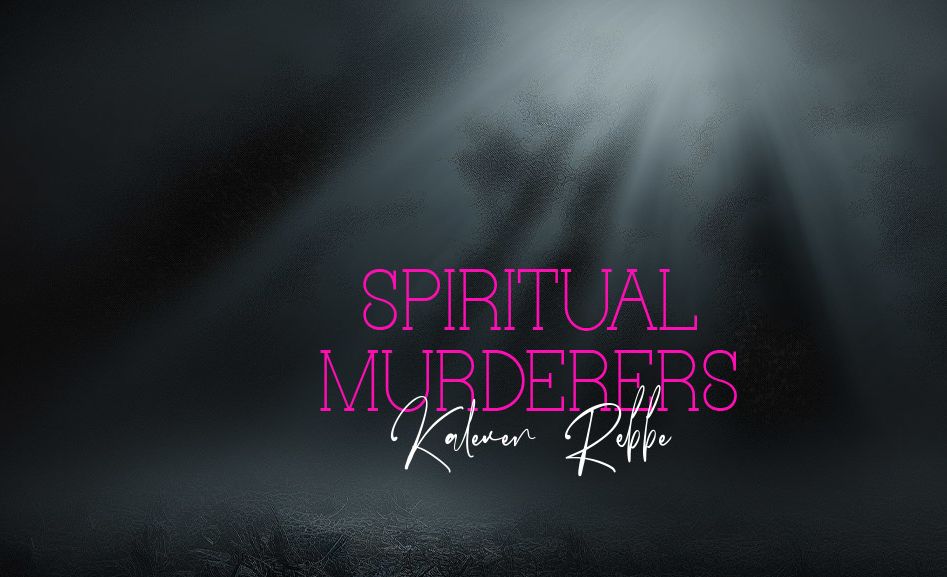
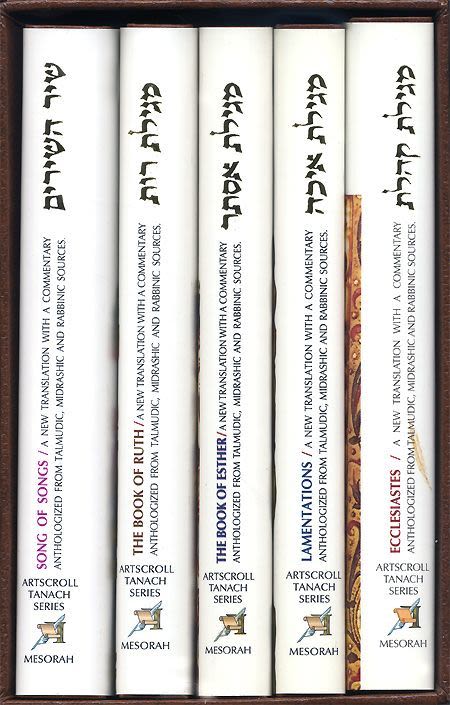


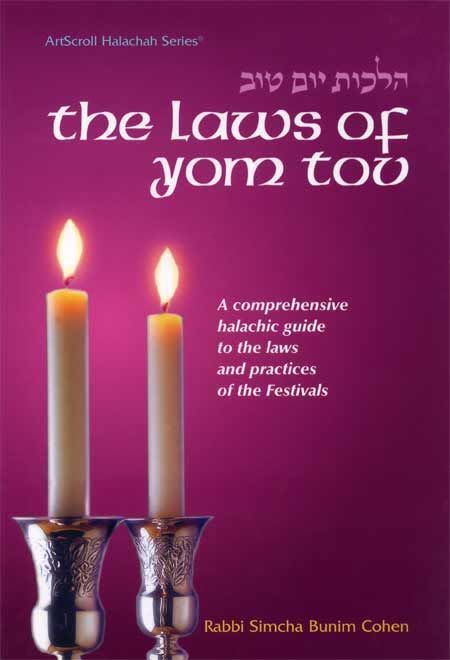
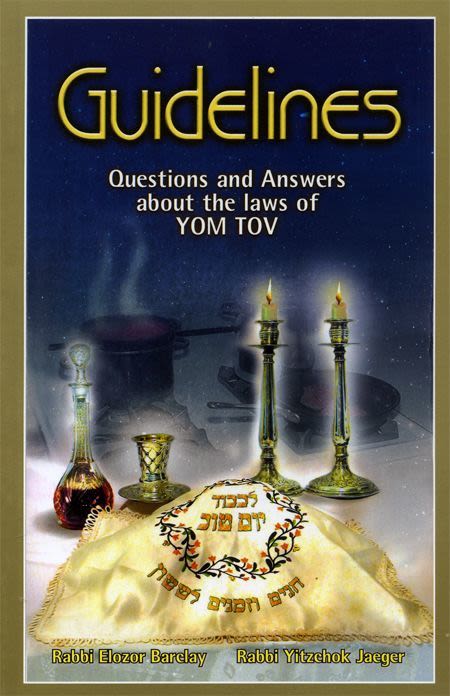
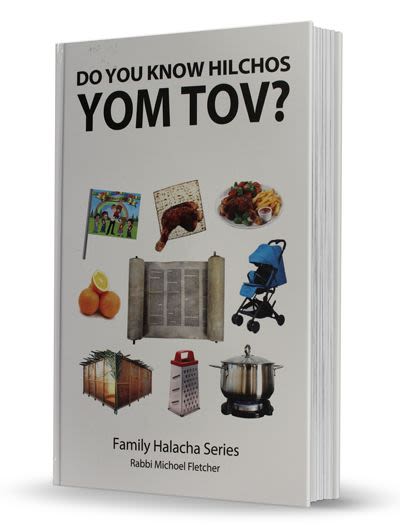
12/21/2023
Thank you for all this Wisdom. IYH Klal Yisrael now has had and is being reignited. Our inner Maccabbee is being reignited now and always. We must all draw on our inner Torah Warrior and advance our Achdut and Ahaves Yisrael now and always to greater levels to Greet Moshiach speedily in our Days in Peace